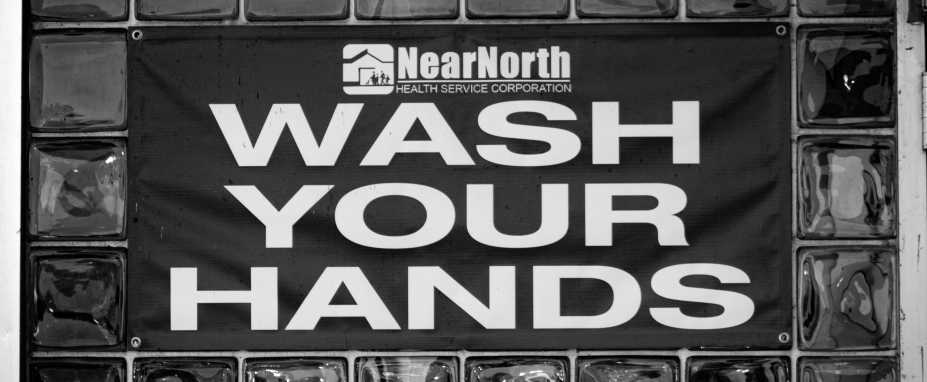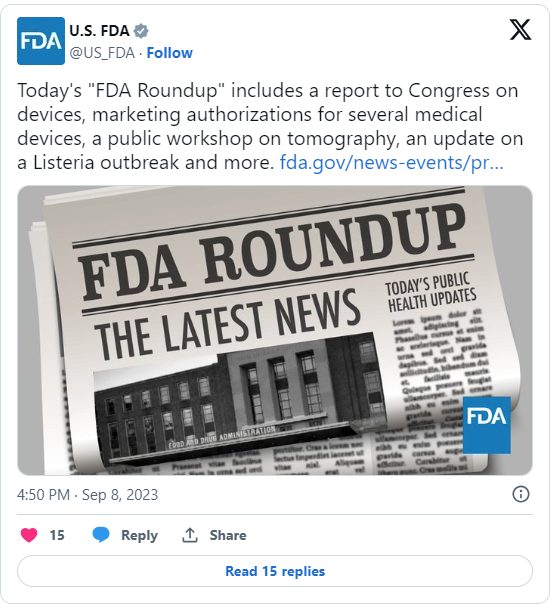Owning a restaurant or bar comes with a ton of responsibility and maintenance. The fear of an impromptu health inspection can keep a restaurant owner or manager up at night. But, there's nothing to be afraid of. Inspections are just part of the restaurant and bar business. As long as you remain vigilant and keep up a professional routine you'll pass these dreaded inspections with flying colors every time. Let's take a second to break down health inspection and how you can prepare.
What Is a Restaurant Health Inspection?
For a restaurant's health inspection, your restaurant, staff, and food products are examined for potentially hazardous or unsafe materials and/or methods that can occur during storage, production, processing, or even packaging. In the United States, the Food and Drug Administration (FDA) sets guidelines for food safety. Some states have additional requirements so make sure you're aware of your local government codes as well.
A registered health inspector will pay meticulous attention to how you store, thaw, and cook food. They will even note the cleanliness of your kitchen, storage areas, and freezers.
When Do Restaurant health inspections occur?
You can typically expect a health inspection every 6 months or in some cases just once a year. They happen at random usually with little to no warning. In addition, a food inspector is obligated to make a check if a customer sends a serious complaint.
What is a restaurant health inspector looking for?
To put it simply, the inspector's job is to protect customers against contamination and food poisoning from your restaurant. During their inspection, a health inspector will be on the lookout for things like:
- Uncovered stored food
- Inappropriate containers
- No labels on your food for “use-by” dates
- No gloves on your employees
- Storing raw ingredients under dripping meat
- Signs of pests
- Storing cleaning products near the pantry
- Lack of temperature control
- No temperature-checking log at all
- Hazardous foods out in the open
- Unkept food handlers
- Lack of general cleanliness
They will also check on the overall knowledge of your managers and staff. Restaurant owners are required to know all of their local health codes. Management is required to have all up-to-date training on food safety and all restaurant employees must be able to demonstrate basic knowledge and understanding of safe food handling and preparation.
To ensure that your staff is educated on food safety, we suggest you include a section that covers the topic in your employee handbook. Toast offers a great downloadable employee handbook example.
What Happens if You Receive a Food Safety Violation?
In the event that you receive a violation, the important thing is not to panic. Instead, focus on finding and implementing a solution as soon as possible.
For Minor Violations
If it’s a minor violation, such as improper labeling or dirty furniture, you will most likely get the chance to address the issue within a set timeframe. Depending on the infraction and the inspector, you may not even be financially penalized. But, it will be recorded and you will be required to go through a follow-up inspection.
You should take this time to check in with your staff and take the time to emphasize the importance of food safety and possibly even test your employee’s knowledge yourself.
For Major Violations
Something like improper cooking or cross-contamination is obviously going to be a more serious offense. You may face a fine and potentially be asked to close the business until the issue is fixed. If you do not comply with food safety guidelines, your restaurant could face being permanently shut down.
In addition, violations are always posted publicly on your health department’s website.
Some violations that are taken very seriously include:
- Unsafe food sources
- Improper food storage (hot or cold)
- Cross-contamination
- Sick restaurant staff
- Improperly cooked food (especially undercooked)
7 Tips to Pass a Health Inspection
A good strategy to be ready for a health inspection is to basically act like every day is a health inspection day. Consistently holding your restaurant and staff to high standards and making sure those standards are being met is the best way to avoid health inspection issues.
Here are some tips to keep in mind:
1. Make Sure Every Employee Has Their Food Handler’s Permit
A Food Handler’s Permit, sometimes referred to as an Employee Health Permit, is a permit that ensures your staff members have individually done the necessary training and received a food safety certification. Most likely this can be completed online via various universal websites or via a program specific to the state your business is located in.
Some states or areas may or may not require this for all staff, but, it’s a good idea to get them trained regardless.
2. Set Rules and Regulations
Every restaurant has its own rules and regulations when it comes to conduct and other factors. Make sure that your front-of-house and back-of-house employees are all on the same page when it comes to your expectations involving food safety. Make expectations and priorities clear and unwavering when it comes to how they should maintain cleanliness at all stages of food preparation and service. This should include food time and temperatures, cross-contamination, and personal hygiene.
Things like wearing gloves and/or hairnets, washing hands, how-to properly deliver food to tables, and what to do if your staff or a guest notices an issue with an order should all be ingrained in every member of your team before they hit the floor.
3. Set a Daily Maintenance Schedule
Your restaurant should have a consistent cleaning schedule. Especially after your final service of every day, both your front-of-house and back-of-house employees should have an hour or so dedicated to cleaning their workspaces and re-setting for the next day's success. It's imperative all your employees know who is in charge of keeping what clean and when they're expected to clean it. This includes refilling hand sanitizer, cleaning the counters, freezers, and bathrooms.
The best way to establish this routine is to come up with opening, closing, end of shift checklists. Post this somewhere easy for the staff to reference and have a manager approve they've finished all their tasks before they can clock out or take a break.
Backbar has a free bar opening and closing checklist.
4. Stay Up To Date on Your Local Health Codes
Local health codes and laws may change over time. Don't risk a stupid violation because of a new regulation you weren't aware of. Holding regular training sessions are a good idea to make sure you and your employees stay on top of information.
5. Print Visual Reminders
Help your staff stay on track by hanging up food safety posters in the kitchen or break areas. Posters serve as permanent reminders of the most important principles. You can hang laminated procedures near prep stations, hand washing reminders in bathrooms, or any other important food handling reminders. Your local office






